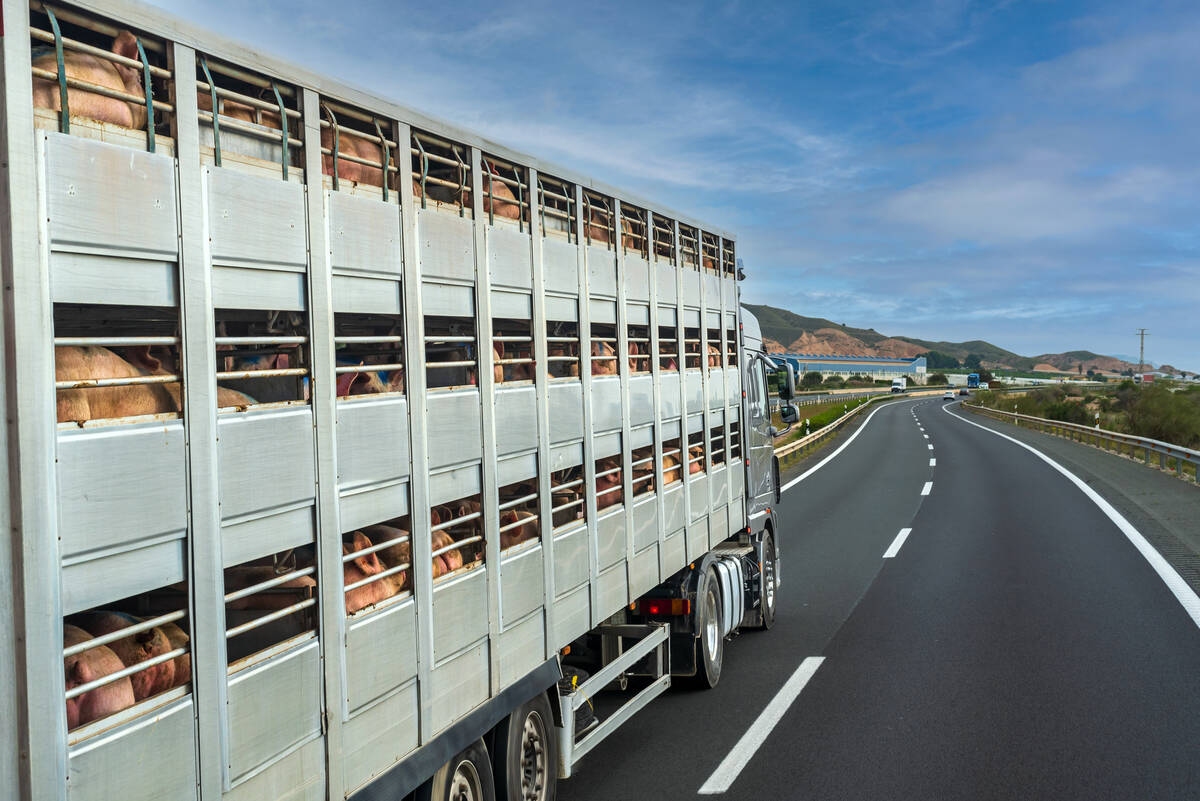Gerry Ritz was in Washington, D.C. last week promoting agricultural trade, science-based regulations and the elimination of mandatory country-of-origin labelling (COOL).
“At this stage of our economic recovery no one can afford a thickening of the border,” Ritz told reporters during a telephone news conference Feb. 24. “That’s why our two countries are committed to reducing duplication and streamlining regulation. Unnecessary red tape can add huge costs to producers and processors and prevent cross-border trade flows.”
Ritz said he encouraged U.S. Secretary of Agriculture Tom Vilsack to reform COOL so it no longer discriminates against Canadian livestock. North America’s livestock is integrated and as a result COOL hurts American processors and farmers too.
Read Also

Pig transport stress costs pork sector
Popular livestock trailer designs also increase pig stress during transportation, hitting at meat quality, animal welfare and farm profit, Agriculture and Agri-Food Canada researcher says
Last year the World Trade Organization ruled COOL contravenes international trade rules by requiring U.S. retailers to notify their customers the sources of foods such as beef, veal, pork, lamb, goat, fish, fruits, vegetables, peanuts, pecans and macadamia nuts.
Canada and Mexico have long contended that COOL illegally restricts market access and is a technical trade barrier. The U.S. has until March 23 to appeal. During their meeting Vilsack played “his cards close to his vest,” Ritz said.
The world needs more and better-quality food while protecting the environment, he said. New technology is the answer and it then follows regulations must be based on “sound science.”
The world should also adopt rules allowing for the low-level presence of genetically modified crops, Ritz said.
“We discussed at length how we can better communicate with consumers about the need for this innovative and science-based approach,” he said.
Eight million American jobs and 2.5 million Canadian jobs depend on trade between the two countries, Ritz said.
There’s $33 billion in agricultural trade between Canada and the U.S. annually. One-third of it is in grains and oilseeds, Ritz said.
“Today, more than ever, agriculture is front and centre both in Canada and in the United States.”



















